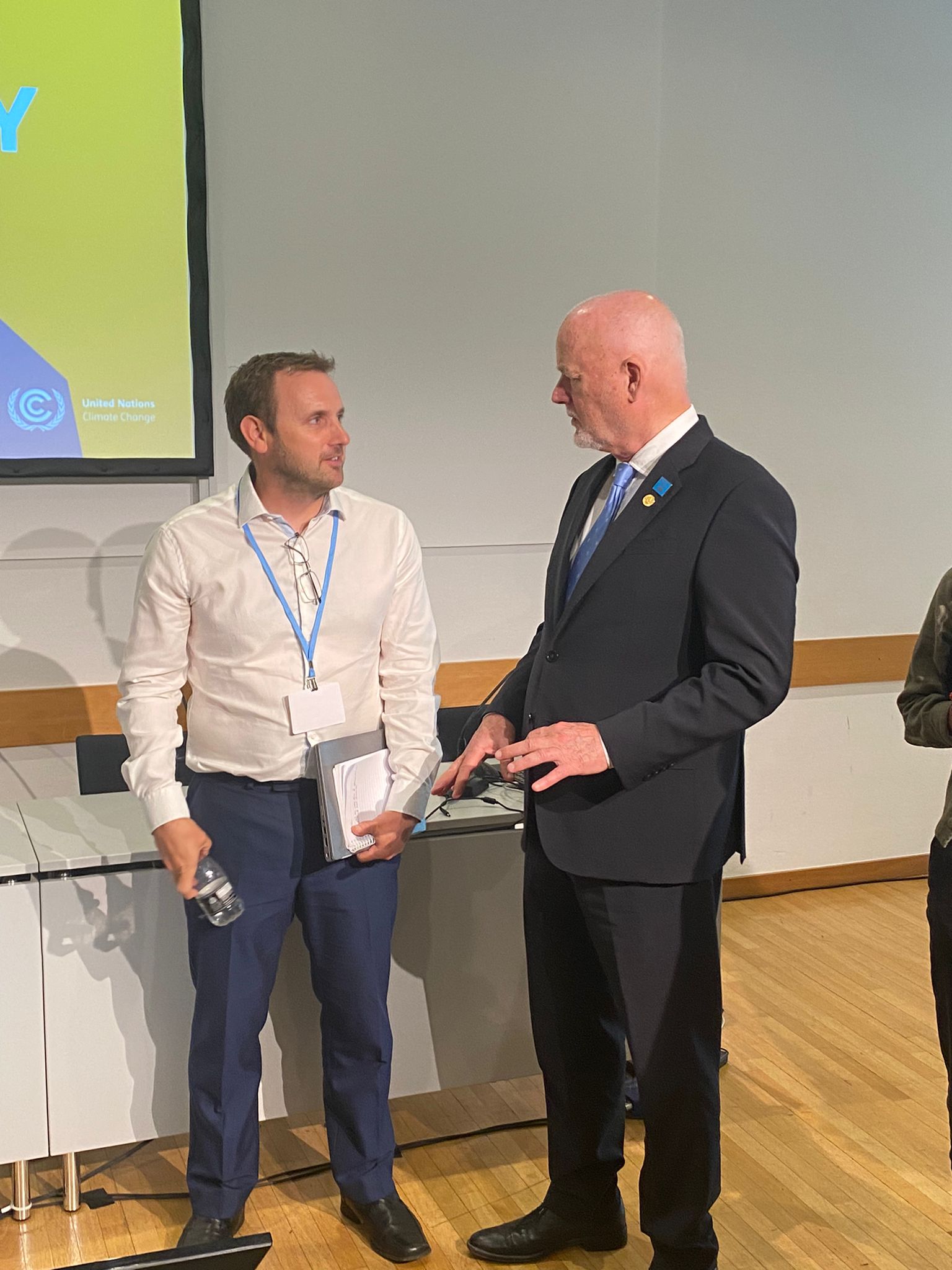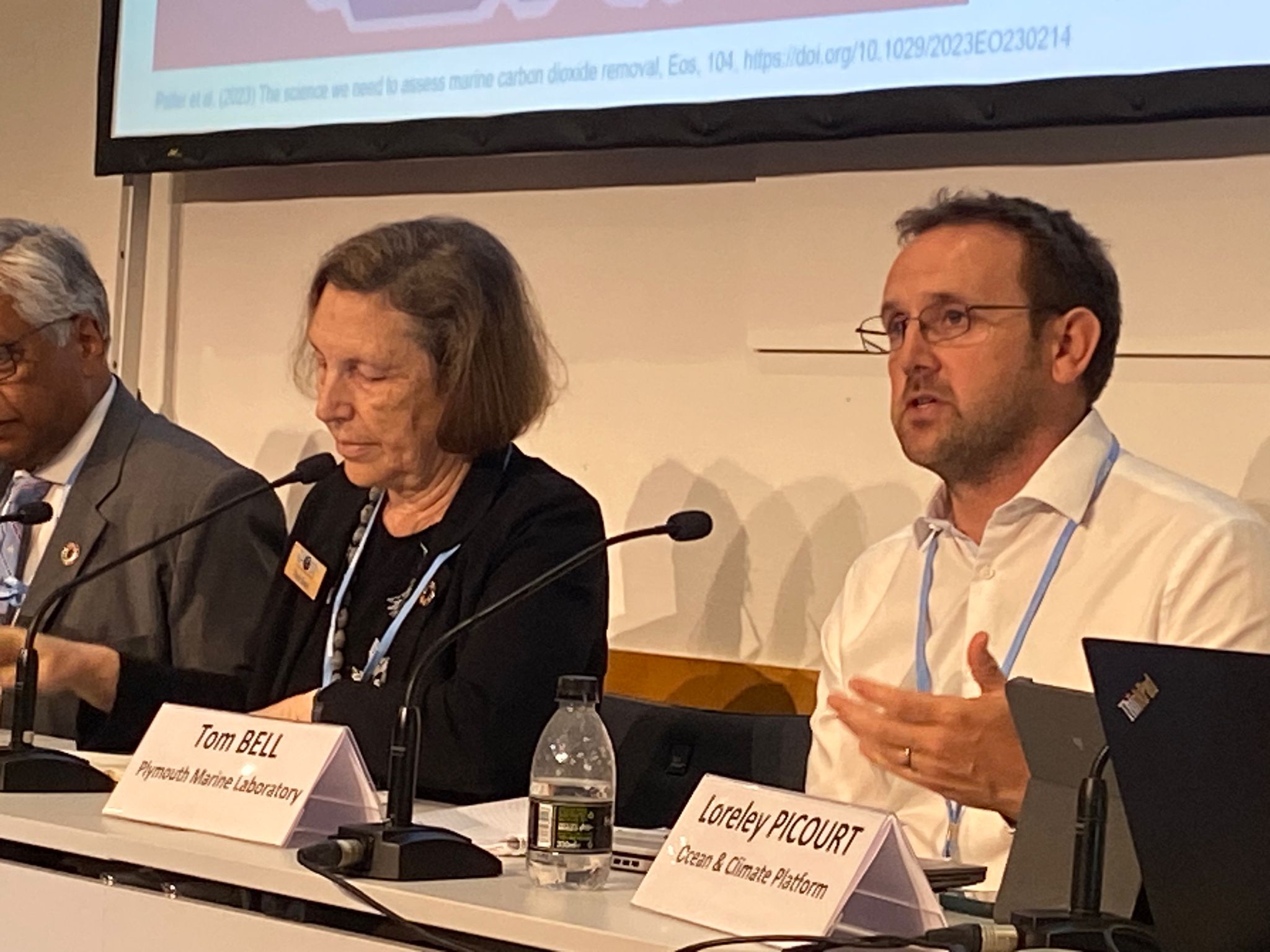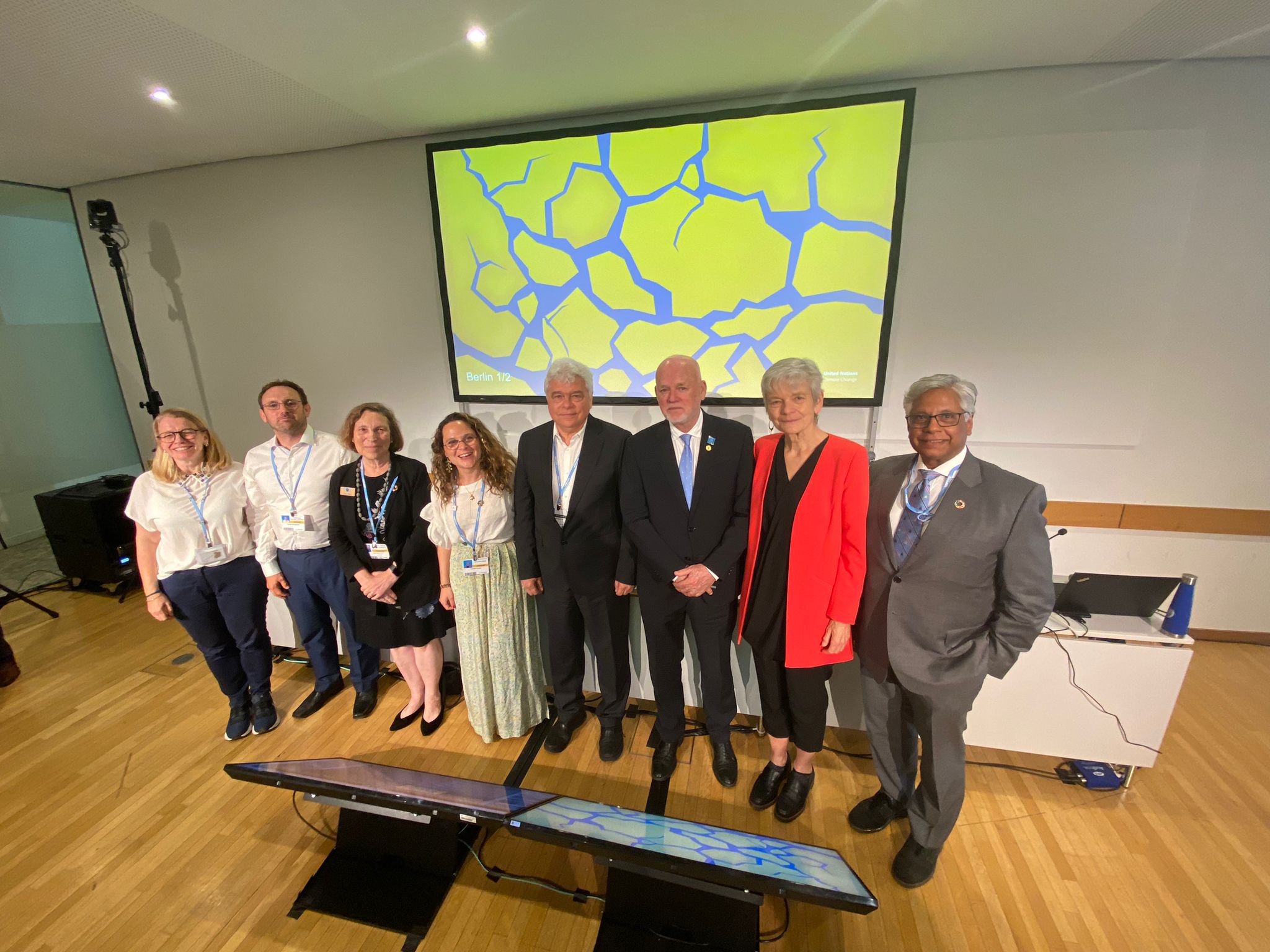Story
Why we need a Global Framework for Ocean-based Carbon Dioxide Removal: Professor Tom Bell explains
13 June 2023
Our Professor Tom Bell spoke yesterday at the UN Bonn Climate Change Conference S8 58 side event: “The Global Stocktake &Ocean-based Carbon Dioxide Removal: opportunities, uncertainties, risks &future needs”.

Above: Professor Tom Bell with Dr Matt Frost
The side-event was organised by Plymouth Marine Laboratory and partners the Ocean &Climate Platform (OCP), Woods Hole Oceanographic Institution (WHOI), Scripps Institution of Oceanography (Scripps-UCSD) and the American Geophysical Union (AGU).
You can view the side-event on demand at the UN Climate Change YouTube channel:
The First Global Stocktake is taking place this year assessing the global response to the climate crisis, providing the opportunity to include the world’s ocean as a key element for nations, and the global community, in delivering the Paris Agreement and addressing the Glasgow Pact of better inclusion of the ocean in all relevant UNFCCC processes.
It is widely acknowledged that limiting warming close to 1.5°C by 2100 will not just require significant cuts in CO2 emissions, but also active removal of CO2 from the atmosphere. Not surprisingly, there is therefore a growing interest in making use of the ocean for the removal of atmospheric CO2, either via manipulation of ocean chemistry or by increasing ocean uptake and storage of carbon through intentional enhancement of natural biological and geochemical processes.
The ocean currently takes up 26% of our CO2 emissions and is the largest store of carbon on Earth. The stability (uptake and release of CO2) of this store under climate change is of great concern.
The side event yesterday focused on the uncertainties and potential of Ocean CDR, sharing recommendations for the future way forward for assessing ocean-based carbon dioxide removal (Ocean CDR) methods and their potential for limiting warming to 1.5 °C, enhancing Nationally Determined Contributions, and contributing to the Global Stocktake (GST).
The event was opened with a high-level address of the UN Secretary General’s Special Envoy for the Ocean, H.E. Peter Thomson, before shortly moving on to our Professor Tom Bell speaking on: “The need for a monitoring, reporting, and verification (MRV) framework to assess the efficacy of different Ocean Carbon Dioxide Removing techniques’.
Professor Bell first began to thank both Peter Thomson and Dr Sarah Cooley (Director of Climate Science, Ocean Conservancy) for their introductions to the requirement of a framework, then continued: “We urgently need a framework to assess ocean CDR efficacy. The window of opportunity for developing and implementing this is now, but time is limited, before the industry grows to a scale that is difficult to regulate retrospectively. Such a framework would benefit all the sectors involved in ocean CDR, of which the diversity and number is growing rapidly.”
Acknowledging that MRV for ocean CDR activities will be complex and approach-specific, Professor Bell highlighted how “investment and support of the scientific community is necessary for the development of such an MRV framework and robust MRV tools.”
You can view a recording of the side-event here, or read some highlights from Professor Bell’s talk below.
 Above: Professor Tom Bell speaking with the UN Secretary General’s Special Envoy for the Ocean, H.E. Peter Thomson
Above: Professor Tom Bell speaking with the UN Secretary General’s Special Envoy for the Ocean, H.E. Peter Thomson
 Above: Professor Tom Bell speaking during the side-event
Above: Professor Tom Bell speaking during the side-event
 Above: The side-event speakers gather for a photo
Above: The side-event speakers gather for a photo